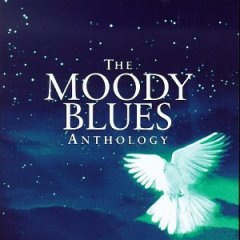This article needs additional citations for verification .(June 2025) |
| Anthology | ||||
|---|---|---|---|---|
 | ||||
| Compilation album by | ||||
| Released | 20 October 1998 | |||
| Recorded | 1964 – 1991 | |||
| Genre | Rock | |||
| Length | 129:00 | |||
| Label | Polydor | |||
| Producer | Various | |||
| The Moody Blues chronology | ||||
| ||||
Anthology is a compilation album by the progressive rock band the Moody Blues. It was released in the US on 20 October 1998. It was not released in the UK until 2001 under the title The Collection with different artwork but with the same tracks as the US release.
Contents
AllMusic noted about the album, "Those buying this set will be assured of hearing 99 percent of the Moody Blues' tracks ever heard on the radio, but there is still a flaw in the programming." [1]